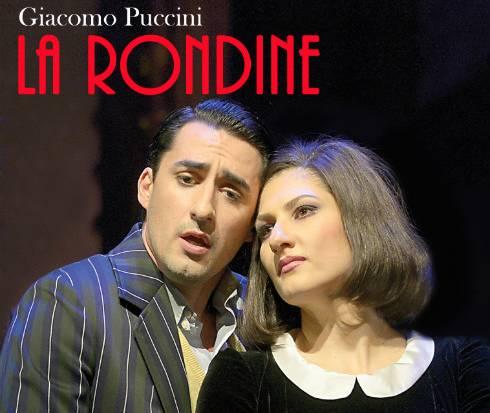“La Rondine” (“The Swallow”), written in 1917, is one of Giacomo Puccini’s least performed operas, perhaps because it lacks the drama and tragic ending of his most popular works: “La Bohème,” “Madame Butterfly,” and “Tosca.” A new DVD (on Delos) of a live performance at Deutsche Oper Berlin in 2015 is a reminder of the opera’s charms.
The plot bears some similarities to “La Traviata.” Basically, a courtesan falls in love with a younger man and ultimately gives him up for his own good.
“La Rondine” begins at a party in Paris. Magda, a kept woman, is living with an old sugar daddy named Rambaldo. Magda’s servant Lisette is carrying on an affair with a tart-tongued poet named Prunier. He has a friend named Ruggero, on his first visit to Paris, and Prunier and Lisette plan to take him to a nightclub.
Hearing of the plan, Magda decides to go there as well, masquerading as a working-class woman. Lisette pretends she is of a higher station by wearing her mistress’s fancy hat.
Magda meets Ruggero and the two fall in love, albeit with the young man believing she is Paulette, her false identity. Meanwhile, Lisette spots Magda and the four characters join in a hymn to love. The wealthy Rambaldo turns up, only to learn that his mistress is ditching him.
In the third act, Magda and Ruggero are living on the French Riviera, with money troubles. He writes to his parents, requesting permission to marry Magda. The parents approve on the understanding that their son is planning to wed a chaste woman. However, Magda feels unworthy and returns to her former life.
One notable aspect is that the production was directed by tenor star Rolando Villazón. Villazón moves the opera into the roaring 1920s, which had a positive result on Johannes Leiacker’s sets and Brigitte Reiffenstuel’s fashionable costumes.






